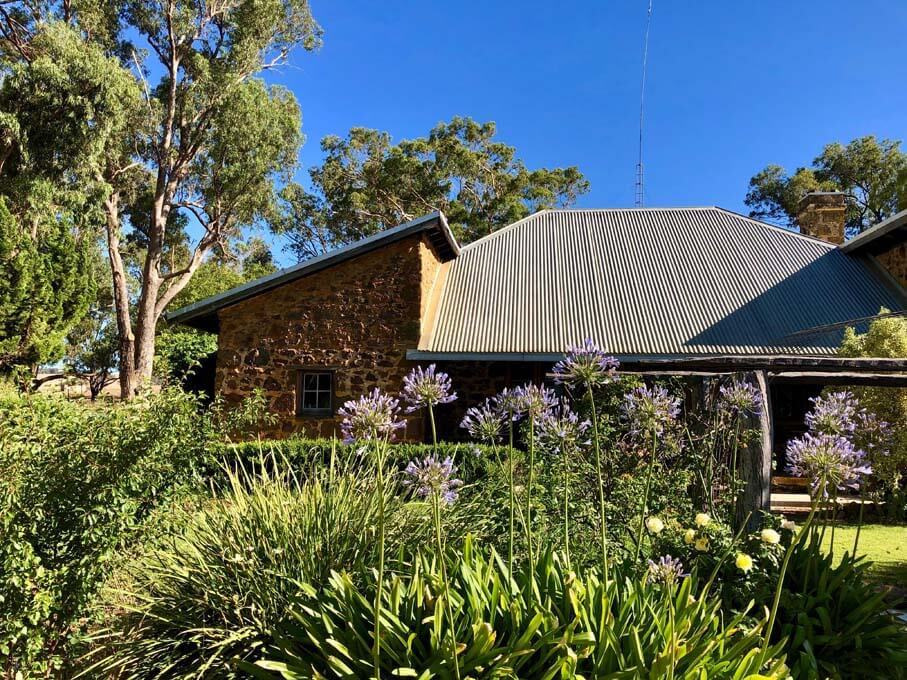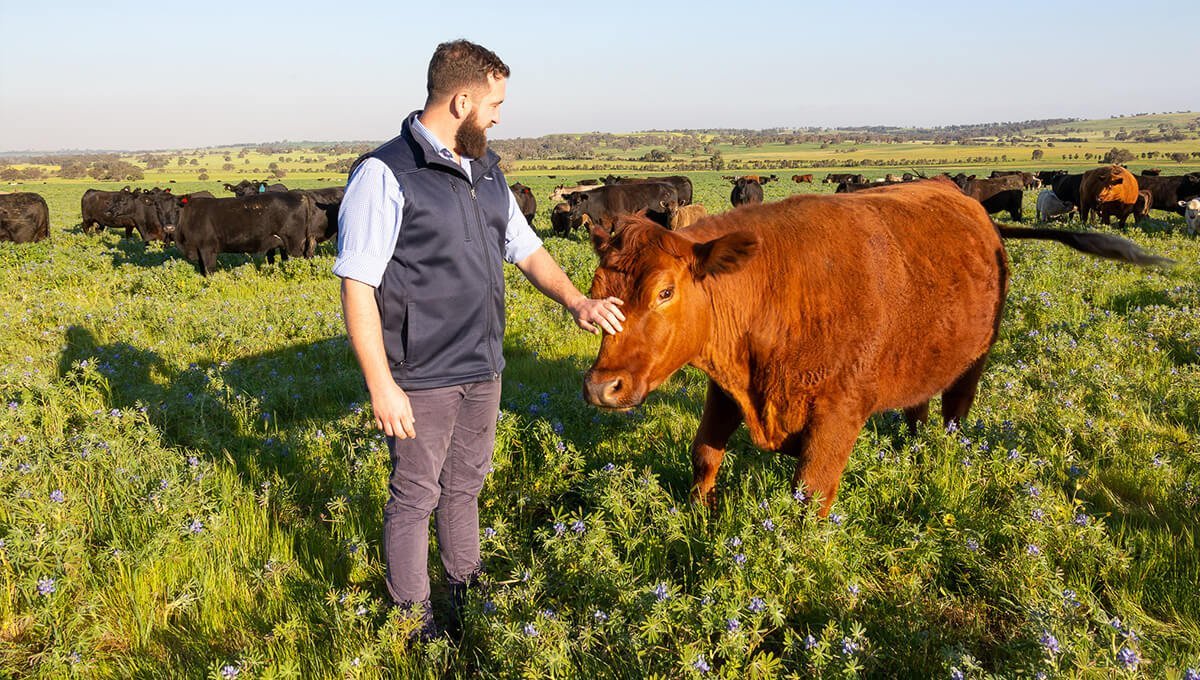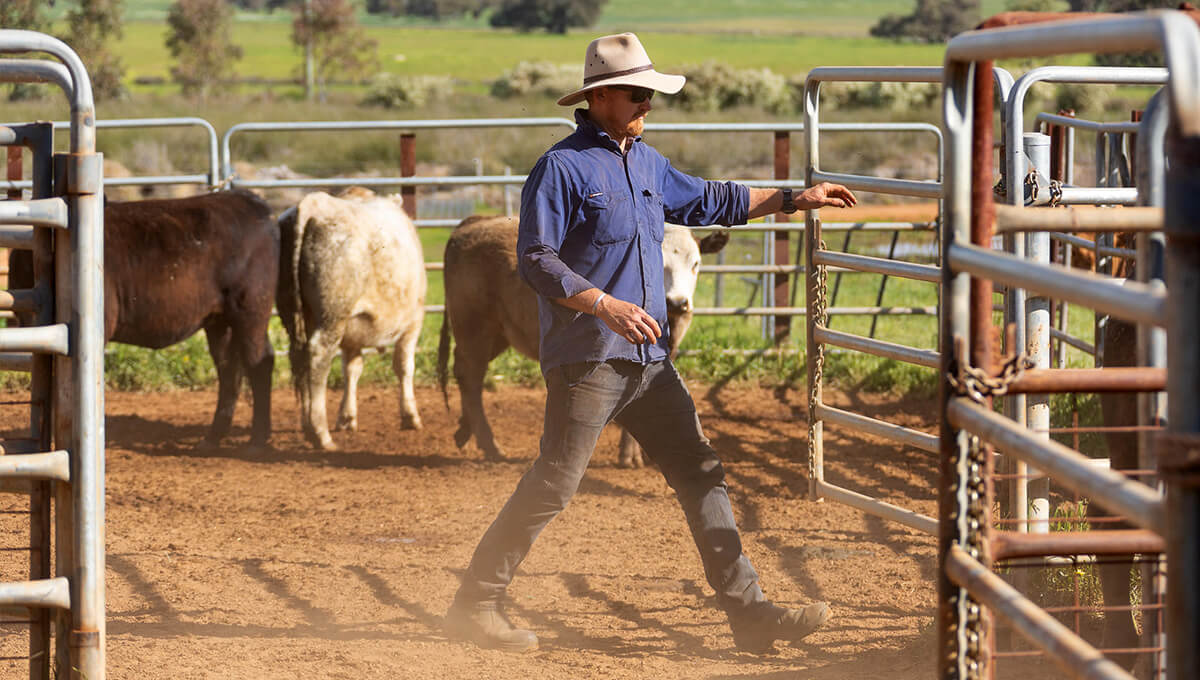
The Farm
Come and discover Noondel, the home of Dandaragan Organic Beef
Our farm, called Noondel, is located 200 kilometres north of Perth in the Dandaragan region. The Cook family has farmed this land for more than 100 years. In total Noondel, plus another nearby property called Tekymbah, comprises 7300 acres of land. The entire area is dedicated to producing cattle for Dandaragan Organic Beef.
Both properties were converted to organic in 2000, which means no use of pesticides, artificial fertilisers, hormones or antibiotics. Instead we use organic farming principles, grazing methods that mimic those of wild herding animals, perennial pastures and low stress stock handling methods. We also apply compost and plant hundreds of trees each year.

Our cattle
We have around 2000 head of cattle. They roam in big herds, are moved onto fresh pasture and water every couple of days and have access to mineral supplements.
We use low stress stock handling methods to ensure that our cattle are quiet and contented. Usually that means we can open a gate and whistle for the cattle to go into the next paddock instead of rounding cattle up with utes and motorbikes. The cattle are happy to move because they know they are moving onto a new paddock with fresh pastures.
We breed the majority of our own cattle, using both Red Angus and Square Meater cattle breeds. The calves stay with their mothers for a minimum of nine months and are weaned using low stress methods. We also buy in extra cattle from a local organic producer who uses the same farming principles in order to meet demand.

Soil & pastures
Producing healthy beef starts with creating healthy soil. Soils balanced with natural minerals and full of microbes will create nutritious pastures, healthy cattle and in turn tasty beef brimming with essential vitamins and minerals along with high levels of omega 3 fats.
By using cell grazing methods and planting out more of the farm to perennial pastures our precious topsoil is always protected by pasture cover, which in turn protects soil microbes, builds up humus and prevents erosion. Cell grazing, which basically mimics the natural grazing patterns of large herding animals, allows grasses to grow taller and their roots longer and deeper, which is better for the soil and the cattle.

Transport
Every week the cattle that are destined for the market are quietly yarded. A small team then selects the animals that are ready for market, which are then loaded onto a truck with low stress compartments and ample room.
The cattle are transported 100 kilometres to the organic certified Gingin abattoirs. This is always done with minimum noise and haste to ensure the cattle remain calm and relaxed. We do all we can to ensure they remain as calm as possible right to the point where they are stunned before slaughter.

